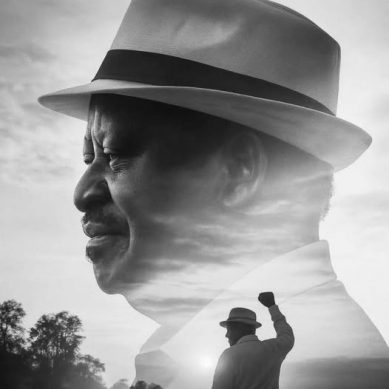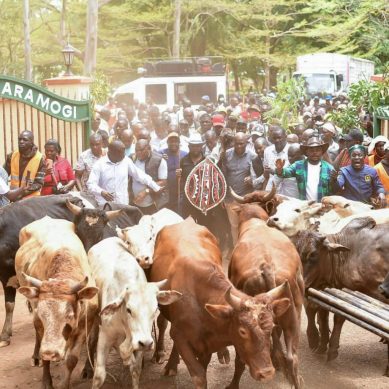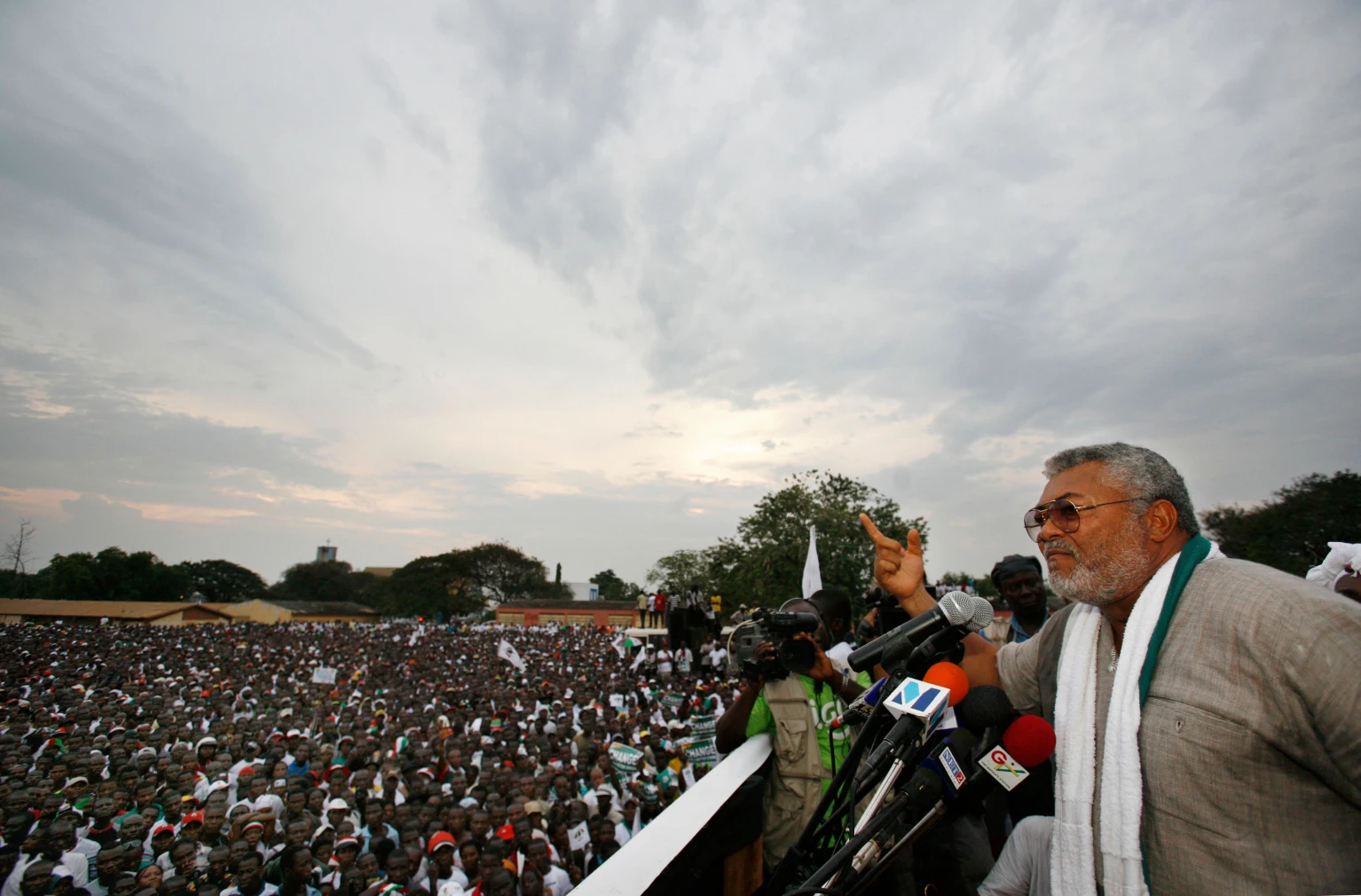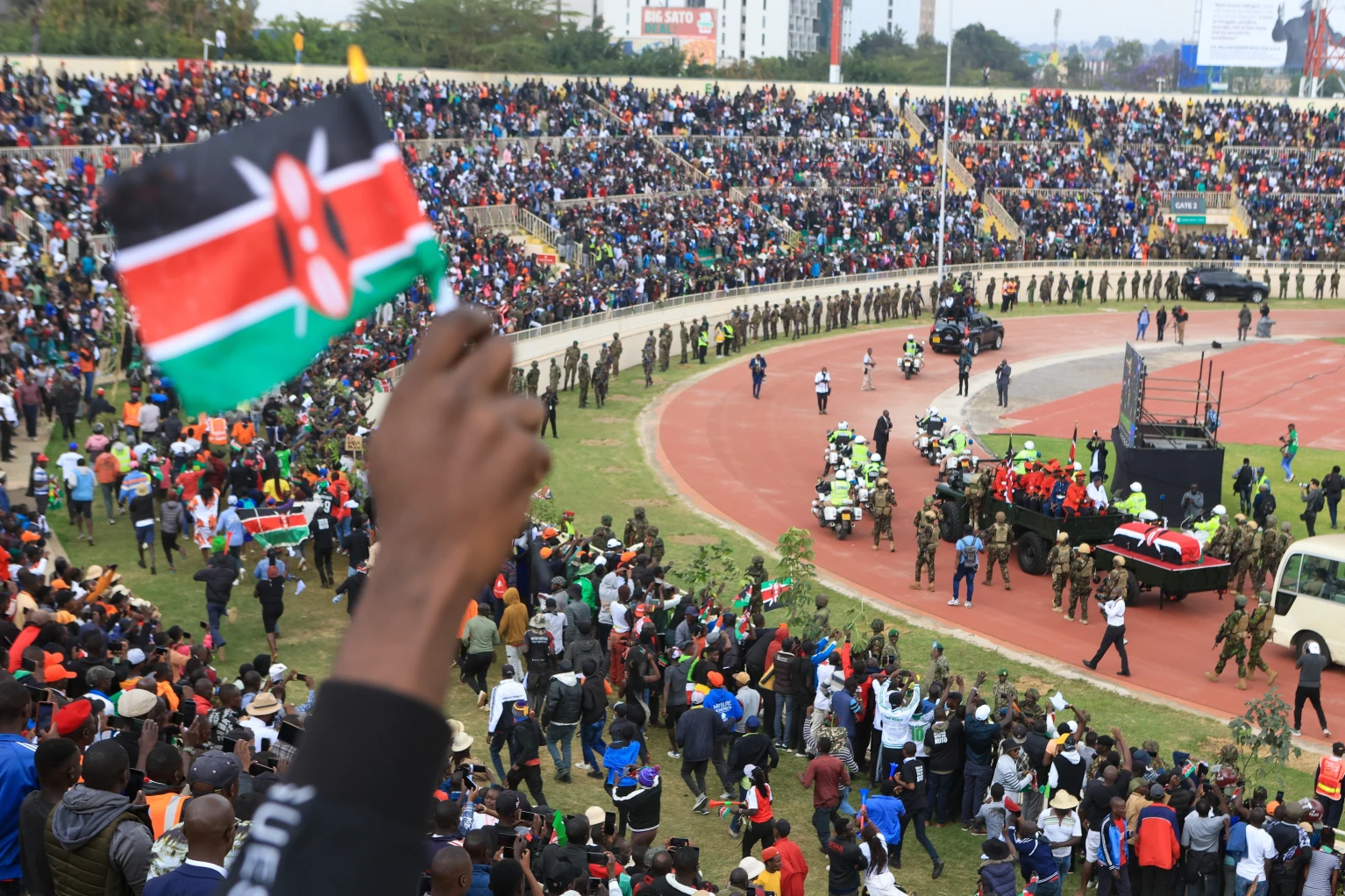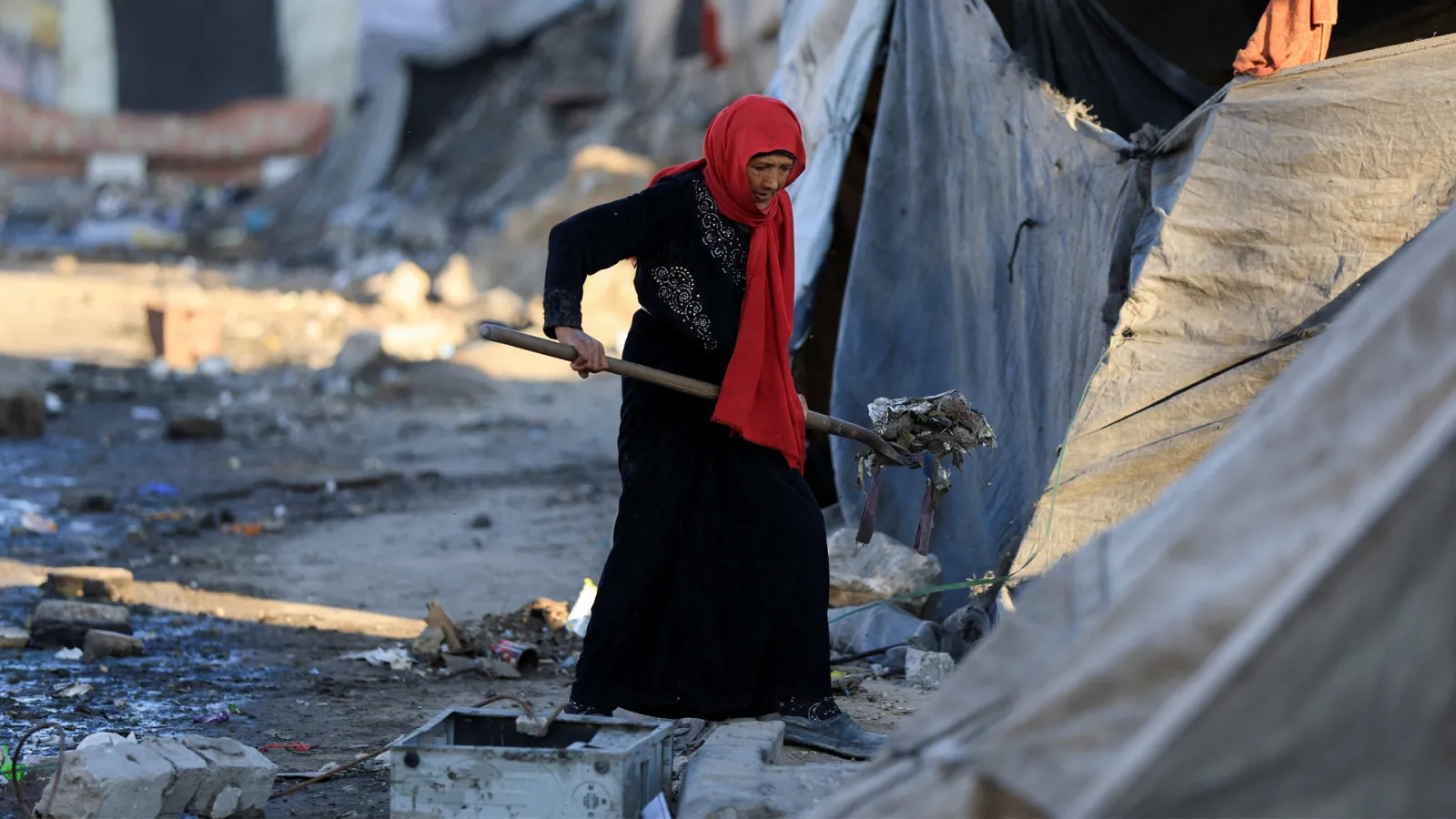
At dawn on October 9, I was half asleep, half afraid. Nothing wakes me up in this silent country like news coming from the south. The phone vibrated on the wooden table beside the bed. The light of the screen cut through the darkness. It wasn’t a notification from a newspaper or an email from work but a name I knew from another time – the name of a friend from Gaza whose voice I hadn’t heard in many days.
In the Netherlands, where I’m now living, it was four in the morning; in Gaza, five – the hour when the call to prayer used to mix with the sound of warplanes or the sudden silence after a bombing.
I answered before I fully opened my eyes. “Rita, there’s a truce!” my friend said, her voice rushed as if running. “They say it just started. People are going out into the streets to see.”
I didn’t know what to say. The word itself – hudna in Arabic – felt heavy and strange, like a pill stuck in the throat. I couldn’t speak. Words cannot describe what war does to a person. Hudna does not mean peace – it only means a pause in the killing.
My friend said: “We don’t believe it. Maybe it’ll end in a few hours.” Then the call dropped, as if even the network hesitated to believe it was true.
I got out of bed, put on my wool sweater and opened the window. The rain was light over the trees. The smell of the earth in Amsterdam isn’t like Gaza’s soil, yet it awakened the same trembling inside me. The one that came after every bombing in the moment’s silence when it feels like life might begin again. But it is only a deception: an intermission before the next horror.
I sat by the window watching the grey light slip through the clouds and thought: How does the morning look there now? Did people really go out? Do the streets still carry the dust of collapsed houses? Are the children testing their voices again?
By six o’clock the calls started flooding in. A cousin in Deir al-Balah: “There’s a truce, but no one feels safe.”
Another: “We don’t know whether to laugh or cry.”
Short fragmented messages, full of doubt. It felt as if silence had become an event; as if calm were a substance that could explode. Later in the morning, I went to the kitchen to make coffee. The sound of the machine felt harsh in my ears. I thought about how such a small device could produce a noise that resembles danger to ears trained to recognise planes.
I sat by the window. Daylight was still pale. I picked up my phone again. Videos were spreading. Children walking barefoot in the streets. Women carrying water containers on their heads. Young men taking pictures of the ruins – some of them laughing. In Gaza, even laughter is an act of defiance.
I wrote in my notebook: “Day one of the truce. My heart feels split between two places. Here, the rain continues and trains run on schedule. There, time stumbles. No one knows if the next hour will pass or return to war.”
The sun is rare in this country. I heard a bicycle pass by the canal followed by a child’s laugh. For a moment, I wished the laughter came from Gaza, carried to me by the wind across the sea.
The next morning, I opened the news: “Truce holds for the second day.”
The sentence was cold, neutral. No one wrote about the fear that accompanies endurance nor the bodies still under the rubble.
I wrote on a small piece of paper: “In the media, a truce means the bombing has stopped. In Gaza, it’s a frightened breath. In exile, it’s the ache of survival.”
I tried to smile. But inside me was a storm of questions without answers: Will the truce last? Will they allow aid in? Can houses be rebuilt before people collapse?
I wondered what it means to be here, far away, able to sleep without the sounds of warplanes while people in Gaza bake bread from rotten flour. Survival sometimes feels like another form of loss.
I went for a walk by the canal. The sunset was pink, the air cold. I tried to smile. But inside me was a storm of questions without answers: Will the truce last? Will they allow aid in? Can houses be rebuilt before people collapse?
The truce there is a short breath between two suffocations. And here, the calm feels like betrayal. Words lose meaning when you know the distance between language and reality is measured in pain. I saw a short video of a woman still searching for her son’s body under the rubble – even after the truce. She said: “The war didn’t stop inside me.”
People around me talk about discounts, the weather, football matches. I look at them and feel like I’ve come from another planet. Everything here seems so normal it’s almost shocking. In Gaza, everything is so limited that even breathing felt like something we had to fight for, measure, and save, as if rationing it to survive.
I remember the first truce, when I was still in Gaza. I felt nothing then. I still couldn’t believe it. How could I? No one could. We were all exhausted – living between shock and fatigue, fear and the wish to rest without knowing how. Even the word “truce” sounded like a temporary lie we repeated to convince ourselves that the bombing would really stop, if only for a while.
I remember people’s faces then: some smiling for no reason; others walking silently through the streets as if searching for their lost voices. Today, hearing about a new truce from afar – from this cold country – I feel that distance changes nothing. There’s the same fear. The same exhaustion. Only the air is different.
At the institute where I work, one colleague asked me: “Are you happy there’s a truce?”
I looked at him and didn’t know how to explain that the word happy doesn’t fit this kind of silence. I said: “I’m relieved they’re not being bombed right now, but a truce is not peace. It’s just a pause in death – a quieter one.”
He nodded and said: “Ah, I see.” But he didn’t.
The truce continues, and people talk about negotiations, conditions, and guarantees. I think the only guarantee that matters is that souls remain alive inside the bodies of people in Gaza.
I looked at the glass of water on my desk – clear, transparent, tasteless, like the flavours of exile. The night after the ceasefire was announced, I slept with difficulty. I dreamed I was back in Gaza. The streets were covered in dust, but people were planting flowers in the rubble. I woke up with tears on my face.
Now, as I write these lines, the rain taps against the glass again. The air is cold. The sky, grey. But inside me – a storm. The truce continues, yes, but Gaza hasn’t rested. My friends keep sending photos of tents, sick children, and people searching for work, for medicine, for something that can still be called a home.
The truce is another form of waiting – waiting for the unknown; waiting for another explosion.
Will this fragile truce bring us back to life? The answer is no. Life doesn’t return through political decrees and signatures on paper. It might return when we dare to look in the mirror without fearing what we survived.
I think often about the distance between me and them. Sometimes I feel I’ve betrayed them by leaving. At other times, I tell myself my voice is the only thing left to share their life with the outside world.
I wrote in my notebook: “The truce in Gaza is not the end of war. It is a chapter between two wars. But it is also a small space for survival – for laughter, for stale bread that tastes like life. It’s a test for the heart, to see if it still knows how to love, despite the ashes.
I look at the window, see my reflection in the glass. I don’t look as sad as I did in April when I first left. But I’m not well either. Maybe because calm in exile doesn’t comfort – it reminds me of what I’ve lost.
Every day since the truce feels like a hesitant breath: an inhale of hope; an exhale of fear.
“The truce holds,” they say. But I know the war hasn’t ended. Maybe the real war has just begun – the one we fight inside ourselves.
Will this fragile truce bring us back to life? The answer is no. Life doesn’t return through political decrees and signatures on paper. It might return when we dare to look in the mirror without fearing what we survived.
Does the survivor bear guilt? This question has haunted me since I left. Sometimes I feel I betrayed something – left something behind that can’t be reclaimed. I whisper to myself: “Are those who died there at peace now? Have they found the silence we, the living, never knew?”
Maybe the war never left us – maybe it never will. But we keep trying each day to live, as if the truce is real and life is near.
At the bottom of a page, I write in small letters: “Maybe the truce isn’t between two warring sides – but between the heart and memory; between the one who survived and the ones who stayed behind.”
Then I close the notebook, leave it on the table. I turn off the light and tell myself the same thing I did in Gaza after every bombing: “Let’s try to sleep a bit. Maybe tomorrow will be lighter.”
- A Tell Media report / By Eric Reidy / Republished with the permission of The New Humanitarian
